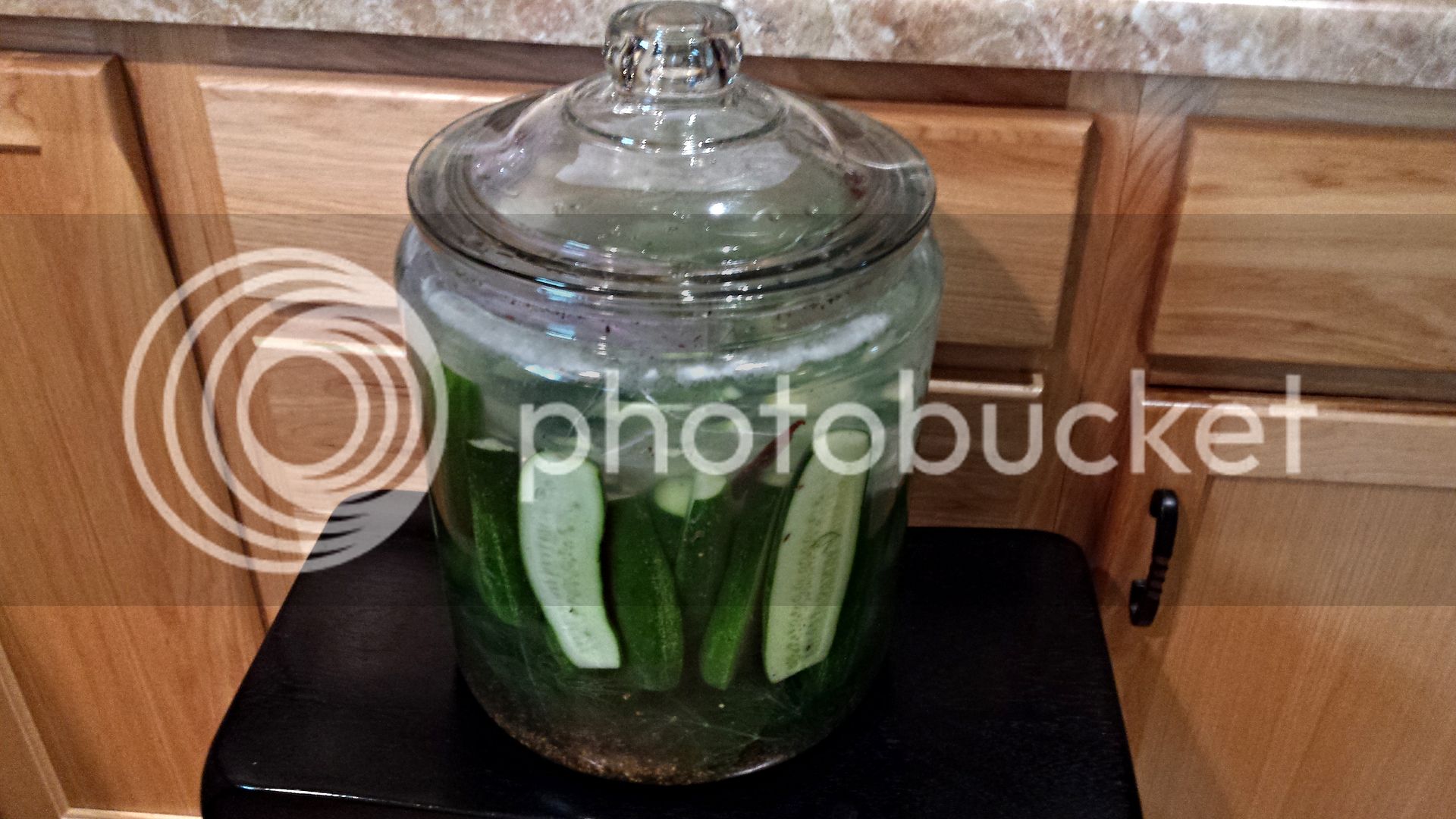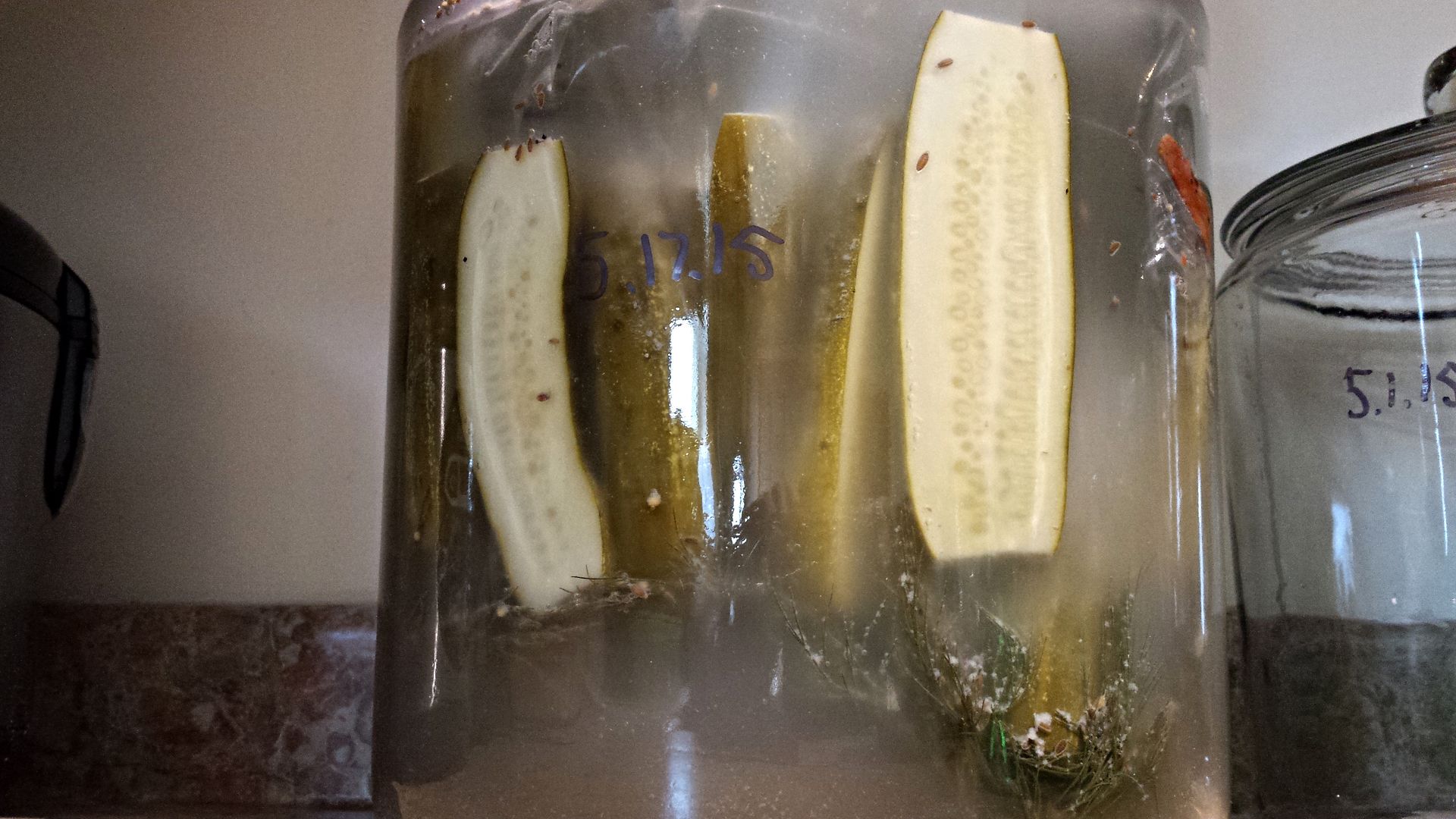I know we have some 'fermented foods' threads, but I can't find one specifically for pickles.
I got interested in this from @Randar at first, and @Tiber_Brew took me to new heights of interest. I stopped in at Tiber's house, and he gave Bob and I a sample of his.
So, I made a batch just about a week or so ago. I used a 2% salt brine (with non-iodized pink Himalayan sea salt, since that is what I had) and cut the cucumbers into spears. I added a serrano, three cloves of crushed garlic, a tablespoon of pickling spice, a teaspoon of calcium chloride, and some dill I grabbed from a friend's garden. I didn't use all that much dill, as I don't love it, and I might have overdone the garlic.
I added a teaspoon of sauerkraut brine from some I was fermenting, to help "jumpstart" the pickles fermentation, and it got started right away.
It turned out really good- except I'd like a bit more spicy heat to it. The garlic is very prominent, but I love garlic so that's fine for me. @Randar suggested adding some hot pepper flakes (I make my own out of dried peppers, so they are pretty hot) and I did that just today.
Here's a photo:

The level is low, because we've had a few already. And I'm going to start another batch right away.
But now I wonder- I don't normally love fermented veggies (except for kim chee)- but how about spicy pickled brussel sprouts, done the same way? What else would be good like this?
I got interested in this from @Randar at first, and @Tiber_Brew took me to new heights of interest. I stopped in at Tiber's house, and he gave Bob and I a sample of his.
So, I made a batch just about a week or so ago. I used a 2% salt brine (with non-iodized pink Himalayan sea salt, since that is what I had) and cut the cucumbers into spears. I added a serrano, three cloves of crushed garlic, a tablespoon of pickling spice, a teaspoon of calcium chloride, and some dill I grabbed from a friend's garden. I didn't use all that much dill, as I don't love it, and I might have overdone the garlic.
I added a teaspoon of sauerkraut brine from some I was fermenting, to help "jumpstart" the pickles fermentation, and it got started right away.
It turned out really good- except I'd like a bit more spicy heat to it. The garlic is very prominent, but I love garlic so that's fine for me. @Randar suggested adding some hot pepper flakes (I make my own out of dried peppers, so they are pretty hot) and I did that just today.
Here's a photo:

The level is low, because we've had a few already. And I'm going to start another batch right away.
But now I wonder- I don't normally love fermented veggies (except for kim chee)- but how about spicy pickled brussel sprouts, done the same way? What else would be good like this?




